energy
Latest
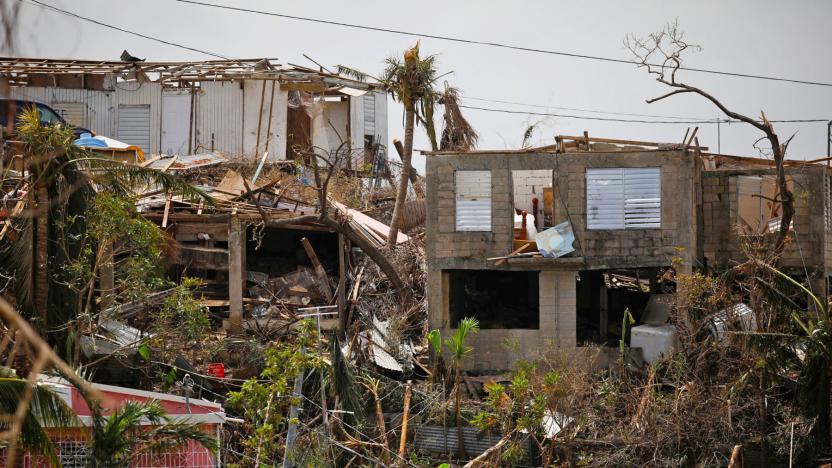
How Puerto Rico's power crisis ends
When Hurricane Maria crashed into Puerto Rico on September 20th, it found a vulnerable target. The island is facing an extreme financial crisis that's been building steam for decades; roughly 43 percent of its residents live in poverty. Its sole electric company, PREPA, is $9 billion in debt and has been operating with outdated equipment for decades. Its power plants are an average of 44 years old and rely on outdated oil-fired systems, while most plants in the United States are about 18 years old and use newer natural-gas generators. PREPA filed for bankruptcy in July, calling its own infrastructure "degraded and unsafe." Then the hurricanes hit. On September 7th, Hurricane Irma skirted Puerto Rico's northern coastline as a Category 5 storm, killing at least three people and knocking out power for more than 1 million residents. That weekend, PREPA was able to turn the lights back on for 70 percent of its affected customers, but others expected to wait months for power to return. Hurricane Maria made its way up the Caribbean on September 20th, bringing winds of 140 MPH and dumping 25 inches of rain on Puerto Rico. It devastated the island. Maria knocked out PREPA's electrical systems, leaving 3.4 million people in the dark, with little hope of a quick recovery. Officials have suggested it will take four to six months for power to be restored.
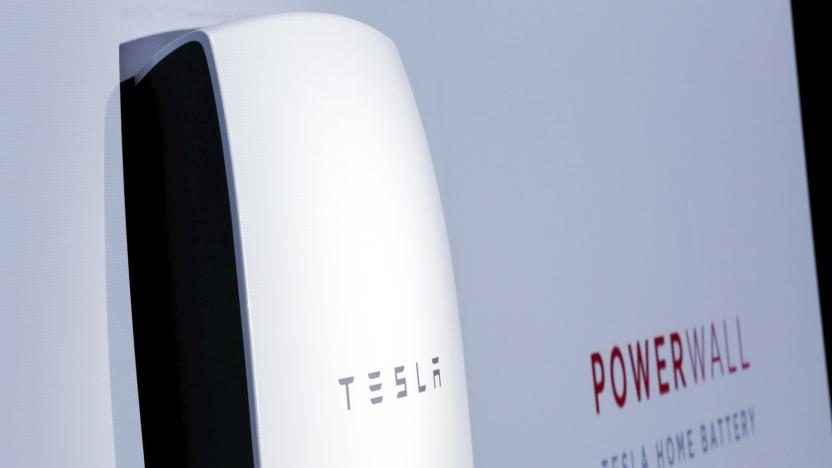
Tesla is shipping hundreds of Powerwall batteries to Puerto Rico
Tesla is sending hundreds of its Powerwall battery systems to storm-ravaged Puerto Rico. The commonwealth has been almost entirely without power since after Hurricane Maria made landfall on September 20th and tore up its energy infrastructure. Once the storm passed, Tesla started sending hundreds of its standalone power banks, and some have already arrived while more are en route.
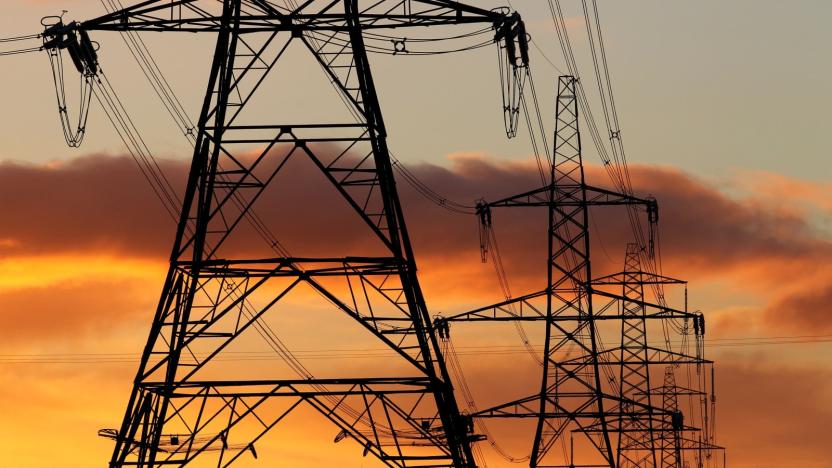
Companies will use AI to stamp out electricity theft
Switching to efficient artificial intelligence systems has already saved Google a ton of money on its energy bills. And, it seems machine learning may also pose monetary benefits (of a different kind) for electricity providers. With power theft costing the industry roughly $96 billion in losses per year, companies could start looking to AI to help identify pilferers.
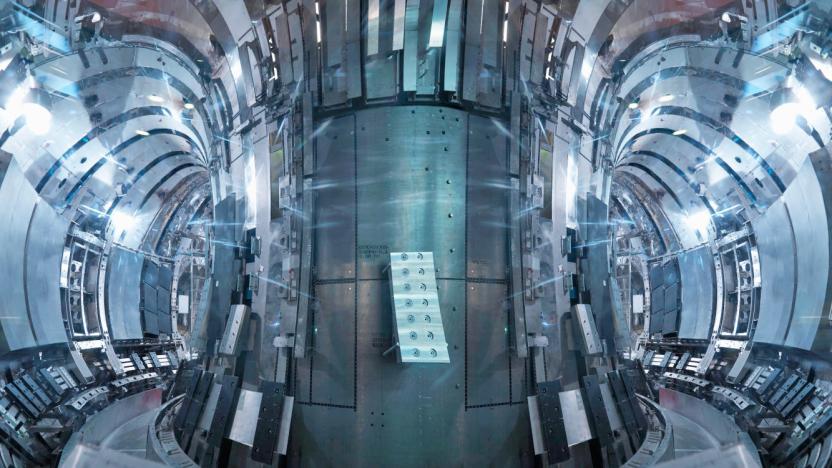
Researchers create a new fusion recipe that boosts energy output
Nuclear fusion is an attractive way to create energy. It generates hardly any waste, doesn't pollute the planet and takes advantage of elements that we have plenty of. But fusion takes a lot of work and the energy payout isn't yet at the level that makes it suitable for producing power. But researchers at MIT have developed a new fusion recipe that boosts energy production by ten-fold.

‘Safer’ thorium reactor trials could salvage nuclear power
A Dutch nuclear research institute is conducting the first experiment in close to five decades on molten-salt nuclear reactors based on thorium. Long hailed as a potential "safer" nuclear power, thorium reactor research could provide clean, affordable and "large-scale energy production." That's according to scientists from the Nuclear Research and Consulting Group (NRG) in Petten, Netherlands. If successful, the trials could result in a switch to next-gen thorium reactors, which are less likely to suffer meltdowns in comparison to their current uranium-based counterparts.

The UK wants smart homes to become one with the energy grid
The UK government imagines a near future where smart home devices and appliances can help balance the scales of energy supply and demand, as well as save consumers and businesses money. The Department for Business, Energy and Industrial Strategy has worked with regulator Ofgem and the industry on the "smart systems and flexibility plan," which sets out ways in which we can make smarter, more efficient use of the grid and new technologies. Connected appliances could play an important part. You might want to set your smart washing machine to run when electricity is particularly cheap, for example, or even cede control of your smart fridge to an external force that turns it off for ten minutes when demand is high and the grid is stressed.
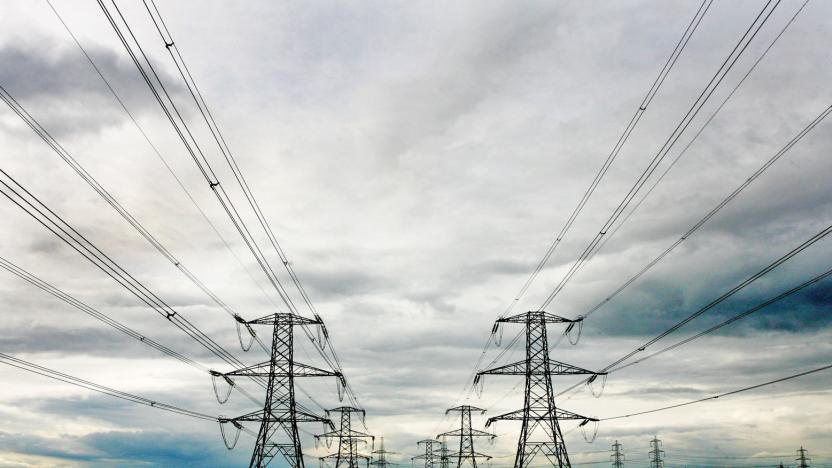
Leaked memo says hackers may have compromised UK power plants
State-sponsored hackers have "probably compromised" the UK's energy industry. A leaked memo from the National Cybersecurity Centre (NCSC) identifies links "from multiple UK IP addresses to infrastructure associated with advanced state-sponsored hostile threat actors." These threats are "known to target the energy and manufacturing sectors," the document says. The memo, obtained by Motherboard and verified by a number of sources, goes on to say that as a result of these connections, "a number of industrial control system engineering and services organisations are likely to have been compromised." The NCSC has neither confirmed nor denied the authenticity of the memo. However, in a statement given to the BBC it said: "We are aware of reports of malicious cyber-activity targeting the energy sector around the globe ... We are liaising with our counterparts to better understand the threat and continue to manage any risks to the UK."
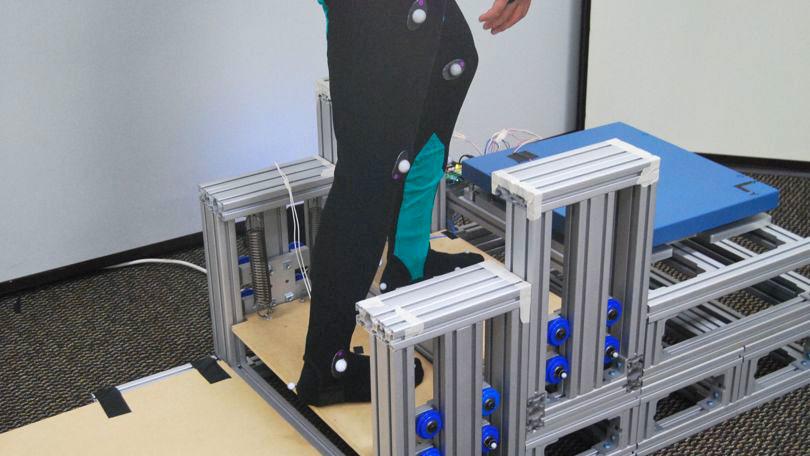
Energy-recycling stairs could replace stairlifts
For most people stairs are a minor inconvenience, but for those with mobility issues they're a nightmare. However, the tedious ascent is set to get a lot easier thanks to new "energy-recycling stairs" that are currently in the works. The idea is that the steps will help folks reduce the effort they expend in their journey by cushioning or boosting their efforts. The design is the work of a group of mechanical engineers, biomedical engineers and computer scientists at Georgia Tech. The spring-loaded stairs compress when stepped on, absorbing impact and saving 26 percent of a person's energy. This energy is then stored to provide a boost of 37 percent when stepped on going upwards.

Strong winds and clear skies help set UK renewable energy record
This week saw more milestones for renewable energy after the National Grid confirmed that power from green sources supplied more than half of UK energy for the first time. On Wednesday lunchtime, power from solar, wind, hydro and biomass accounted for 50.7 percent of energy production. In another UK first, nuclear, wind and solar each generated more electricity than coal and gas combined.
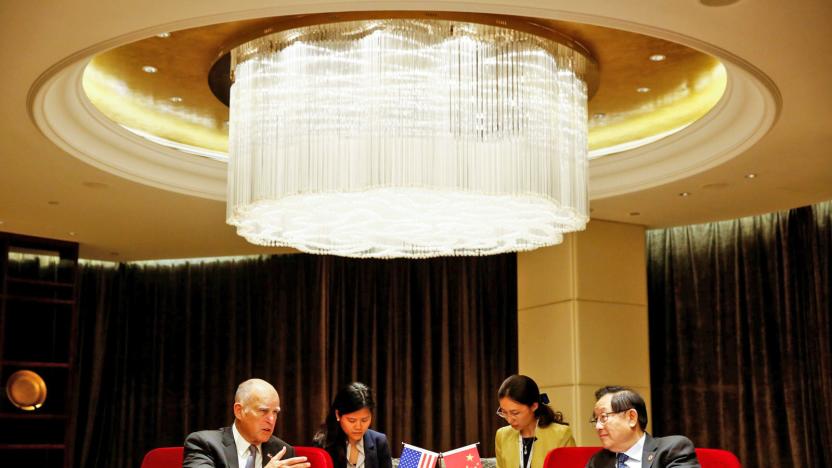
California and China partner on clean energy tech
The Trump administration's decision to leave the Paris Accord has already prompted some states to forge their own pro-environment pacts, but the latest such alliance is... unusual. California and China are forming a partnership that will see the two work together on clean energy technology, including carbon capture and IT that can keep greenhouse gases in check. They'll also unite on emissions trading and additional "climate-positive" initiatives. It sounds like a contradiction to work with China when it's notorious for its pollution, but it makes more sense in light of the country's recent efforts to turn itself around.
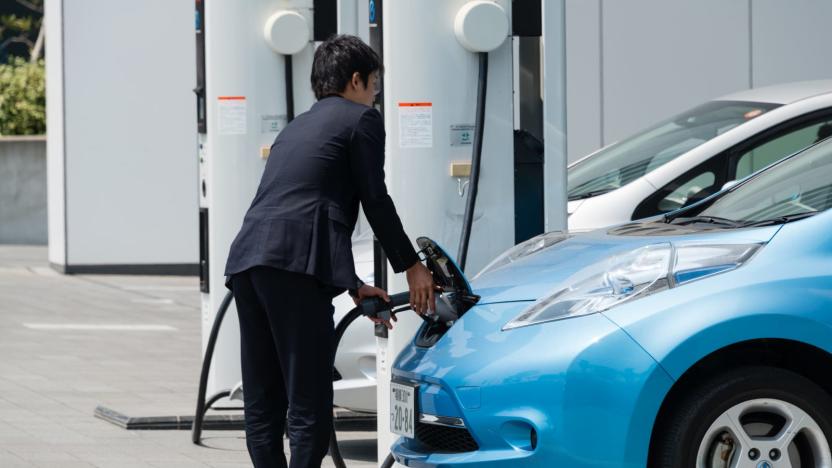
EVs are greener than ever thanks to renewable energy
Some wags will always try to claim that EVs are just as dirty as regular cars, because electricity is generated in coal-fired power stations. Except, that's not really true anymore, which is why the Union of Concerned Scientists has updated its data on how environmentally friendly electric cars are. The results won't shock you, but an EV is now about as efficient as a gas-powered car that can make 73 miles per gallon.

India will be the first to power its ports with green energy
As the US comes to terms with President Trump's decision to withdraw from the Paris climate change agreement, India is celebrating government efforts to promote green energy. Earlier this week, officials announced that all 12 of its major shipping ports will switch to renewable sources, making India the first country to convert all of its dockyards to run on electricity generated from solar and wind installations.
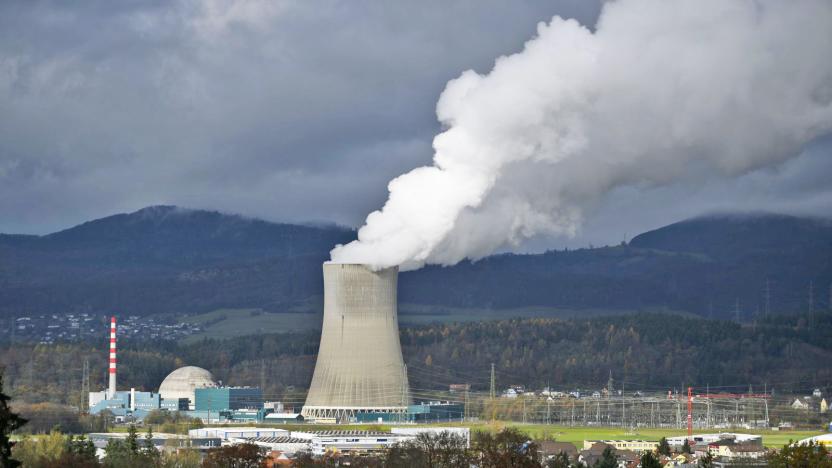
Switzerland votes for an end to nuclear power
Countries like the UK might still embrace nuclear power, but Switzerland is headed in the opposite direction. The country has voted in favor of an energy plan that will eventually eliminate any use of nuclear power, shifting its efforts toward renewable sources like solar and wind. While there's no timetable for the nuclear shutdown, which was chosen through a binding referendum. However, efforts should get underway in January 2018 -- you may hear more details by then.
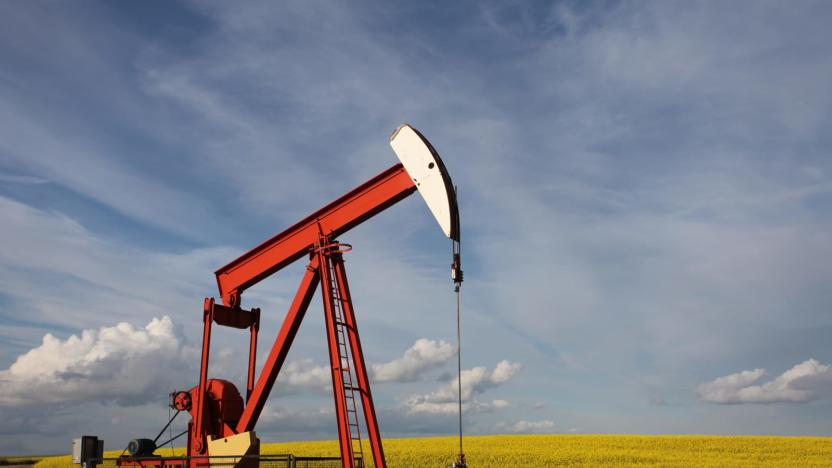
Bacteria could lead to cleaner methane power
Methane as a greenhouse gas isn't all that eco-friendly when used for power, but scientists might have a way to keep the damage to a minimum. Penn State researchers have crafted microbial fuel cells that can convert methane into electricity right at the well, without leaking loads of gas into the atmosphere by sending it through pipes. The team created a cocktail of bacteria (including a synthetic microbe you can't normally grow) that produces the necessary materials to grab and transport electrons from the methane. Not only is this a relatively clean process, the bacteria can run on waste products -- it might clean up the site as it generates power.

Tesla's Solar Roof is available for pre-order
Tesla didn't quite fulfill its promise to start Solar Roof sales in April, but you thankfully haven't had to wait that much longer to pull the trigger. As of today, you can pre-order Tesla's stealthy solar power cells in textured or smooth variants ahead of the first US installations in the summer (2018 elsewhere). While the price will vary depending on your home, of course, the company estimates that a "typical" buyer will pay about $21.85 per square foot instead of $24.50 for a regular roof. Not that there will be much mystery regardless of what you pay -- Tesla is offering a cost calculator to figure out your real-world expenses.
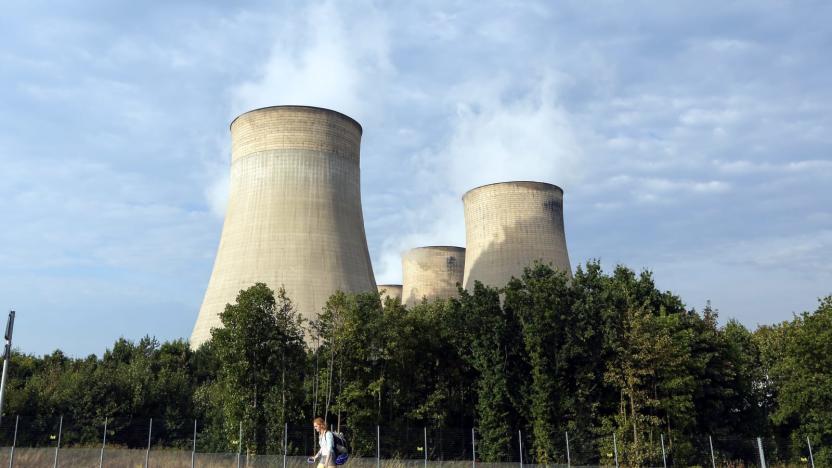
Britain has its first day of coal-free power in 135 years
Coal power has been a fixture of British culture ever since the country's first plant went live in 1882. It shaped the Industrial Revolution (and the air pollution that followed), was involved in major labor disputes and even led to a famous album cover. However, the country is now backing away from coal -- and it just achieved an important milestone in weaning itself off of this dirty energy source. The National Grid has confirmed that, on April 21st, Britain went without coal-generated power for its first full day in 135 years. There had been relatively long stretches in recent times (19 hours in May 2016, for instance), but none as long as this.

Apple is on a mission to only use recycled materials
With the release of its new environmental report, Apple is looking to push the envelope of what it can do for the good of the planet. Last year, it boasted about how much cash its recycling efforts had saved it, including $40 million worth of gold re-used from old devices. This year, it's talking about "closing the loop" on its use of raw materials, potentially redefining how gadgets are made altogether.
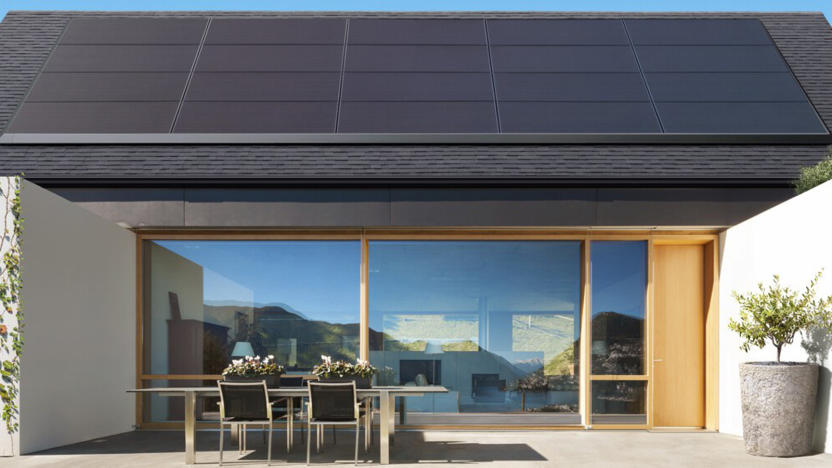
Tesla's sleek solar panels are easier to install on your roof
Tesla's home energy efforts might be centered around its solar roofs, but it knows that not everyone can (or wants to) rip up their roof just to bring renewable energy to their home. To that end, the company is offering a first glimpse at Panasonic-made solar panels that would go on top of your existing roof. Unlike many aftermarket options, this would be relatively slick and unintrusive -- the panels have "integrated front skirts and no visible mounting hardware." While it'll be patently obvious that you have solar energy on your roof, it shouldn't be the eyesore you sometimes get with conventional designs.
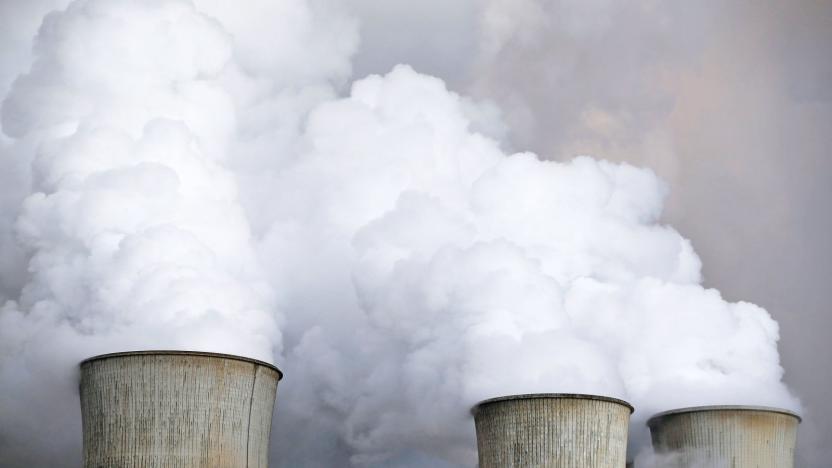
Coal's sharp decline leads to a drop in US energy production
Whether you like it or not, coal power is on the decline... and that's having a marked impact on American energy output. The US Energy Information Administration has published data revealing that the country's 2016 energy production dropped over year-over-year -- the first such drop since 2009. Most of it can be pinned on coal, whose output fell a steep 18 percent compared to 2015. Other energy sources dipped as well, but not by nearly as much. Natural gas and crude oil were down 'just' 2 and 7 percent respectively.

Dear Donald Trump: 'Clean coal' doesn't exist
"Clean coal" is an oxymoron. Even if you took a hunk of coal, doused it in bleach and scrubbed it for six hours with a soapy horsehair brush, it would still cause lung cancer and fill the air with carbon emissions when you burned it. Anyone who says otherwise is lying. However, the phrase "clean coal" is ridiculously tenacious in public discourse. Just this week, President Donald Trump used it: As he signed an executive order rolling back a bevvy of environmental protections laid out under the Clean Power Plan, he turned to the coal miners staged around his desk and promised to "end the war on coal and have clean coal, really clean coal." The president of the United States is lying.








